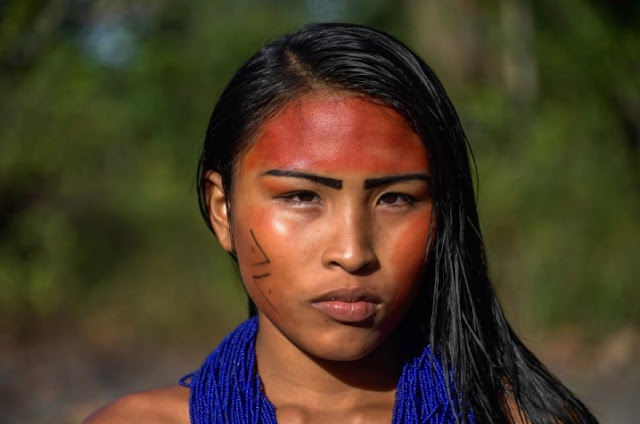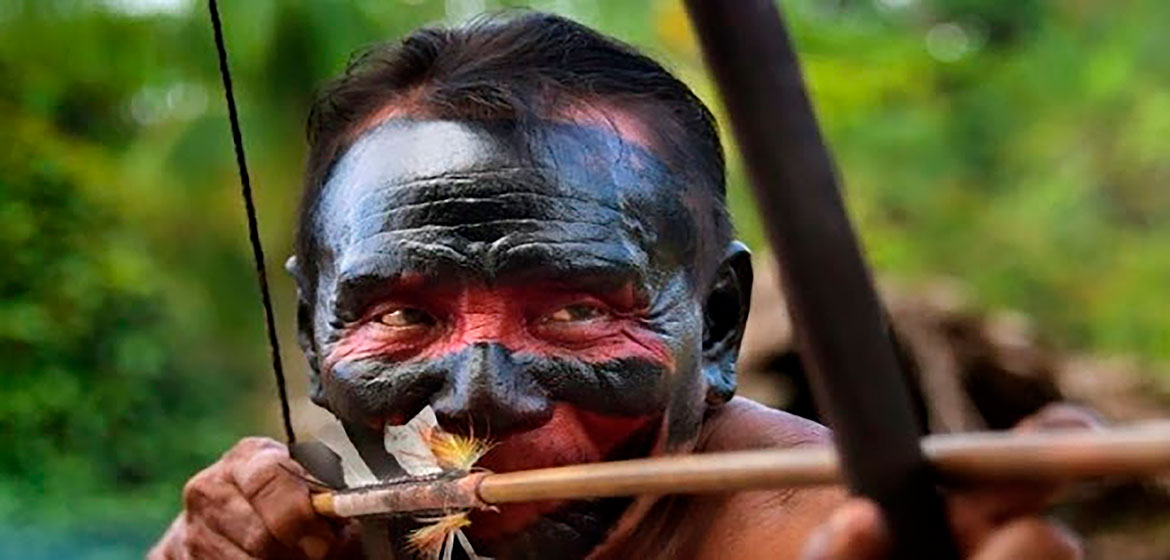These are the Waiapi, an ancient tribe living in Brazil's Amazon rainforest but now fearing invasion by international mining companies.
Leading AFP reporters to a tiny settlement of palm-thatched huts hidden in foliage, the tribesmen streaked in red and black dye vow to defend their territory. They brandish six-foot (two-meter) bows and arrows to reinforce the point.
"We'll keep fighting," says Tapayona Waiapi, 36, in the settlement called Pinoty. "When the companies come we'll keep resisting. If the Brazilian government sends soldiers to kill people, we'll keep resisting until the last of us is dead."
The Waiapi indigenous reserve is in pristine rainforest near the eastern end of the Amazon river. It is part of a much larger conservation zone called Renca, covering an area the size of Switzerland.
Surrounded by rivers and towering trees, the tribe operates almost entirely according to its own laws, with a way of life at times closer to the Stone Age than the 21st century.
Yet modern Brazil is barely a few hours' drive away.
And now the center-right government is pushing to open Renca to international mining companies who covet the rich deposits of gold and other metals hidden under the sea of green.
In August, President Michel Temer abruptly ended mining restrictions in swaths of Renca, sparking an outcry from environmentalists and celebrity campaigners like Leonardo DiCaprio.
Temer backtracked in September. However, the Waiapi, who were nearly wiped out by disease after being discovered by outsiders in the 1970s, remain terrified.
The rainforest, says 35-year-old Moi Waiapi, another inhabitant of Pinoty, "is the foundation for our survival."

Source:
Related to SDG 10: Reduced inequalities, SDG 15: Life on land



